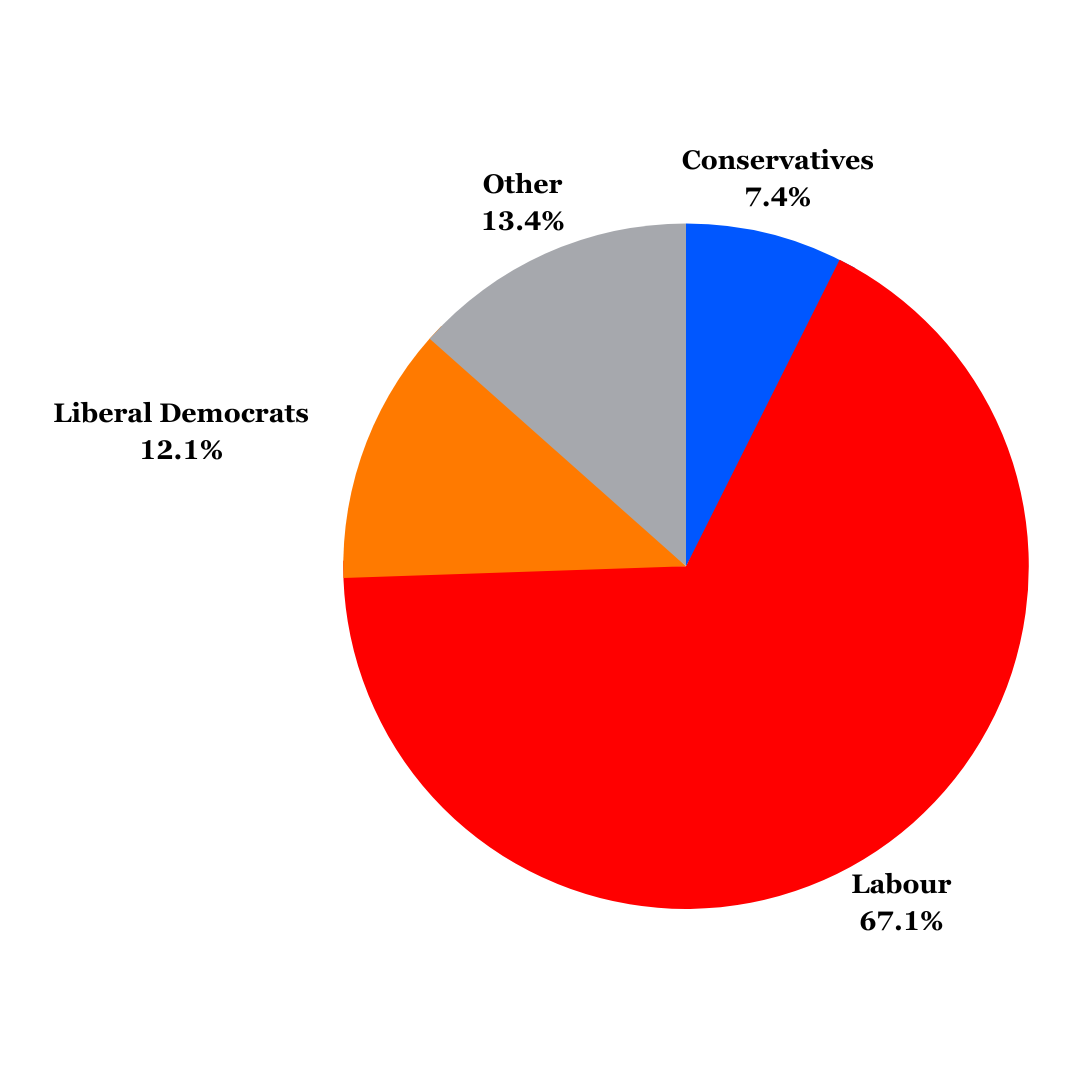Like millions of other people, my first football match is an important memory. West Ham lost 0-1 to Stoke in the 13/14 season, but I still remember seeing the pitch for the first time and being unable to comprehend the size of the stadium and the amount of people in it. If it sounds like something of a religious experience, you’re not mistaken. In many ways, supporting a team is like subscribing to a religion, with all of the heightened emotions and admiration of a few exalted figures. But like religion, historically the privileges are given to those who can afford them.
In general terms: where there is sport, there is money. Clubs need to be established, equipment bought, staff paid, home turf hired/purchased and players need to be signed. Football is no different in this respect, and perhaps presents the most clear example of all sports. Vast amounts of money have nearly always been involved, from Giuseppe Savoldi’s transfer to Napoli in 1975 (the first over £1 million), to Manchester United paying £80 million for Harry Maguire in 2019. Despite the recent astronomical inflation of the transfer market, these huge amounts are far easier to manage for the top clubs, who are backed by enormously wealthy individuals (and sometimes entire countries). But a football club is as much a business as a passion project, and when people invest their money they logically expect a return.
Clubs can profit in many ways, from lucrative broadcasting revenue, sponsors and transfers. But, aside from Todd Boehly, fans are perhaps the most willing spenders of all, and they alone represent a huge potential for profit. In 2021, Barcelona took £110,900,000 on the matchday experience (tickets, food, drink etc.) and Tottenham were not far behind with £94,500,000. Whilst these may seem like huge figures, for top clubs the money made from fans actually accounts for a small portion of the overall revenue. Thus the question arises; if fan revenue is far less consequential for clubs than other streams, why is it seemingly so expensive for supporters?
An immediate answer could be as simple as, ‘Clubs are businesses, they can charge what they like’. But this does nothing to address the issue that, for many people, football just is expensive. The most obvious place to start is with tickets. Many would claim that you’re not a true fan if you’ve never seen your team play. There is something truly unique about being in a massive stadium of people with a shared passion. But for West Ham fans it will cost a minimum of £50, and that’s likely for a seat as far away from the pitch as possible. Factor into this the travel to and from the stadium for supporters from all around the country, matchday food and drink, and the cost of attending a Premier League match skyrockets. Of course West Ham cannot be representative of the whole league, and according to goal.com tickets can be bought for as little as £9 at Liverpool and £16 at Burnley. But this in itself is not representative, as there’s very few of these tickets available and the view from your seat will be greatly affected.
The reality is that attending a Premier League game is expensive. For Manchester City’s upcoming league game against Bournemouth, the tickets range from £58-75. Not exactly a casual day out. European cup games usually mean a more modest price, and West Ham are offering a 3-match ticket to adults for £60, decent value for three home games. There is, however, one major condition, aside from the fact that these will almost certainly be for the worst seats in the stadium; this deal is only available to season ticket holders. An adult season ticket for the current season which guarantees semi-decent seats starts at £630. The offer is there, but only if you’re willing to fork out £100s in advance. For many people, attending a game, arguably the essential aspect of supporting a team, is unaffordable. Consider further the fact that Premier League teams will play 38 games in a season, and the idea of semi-regularly watching your team play becomes a mere fantasy. Fans create the matchday experience and are the backbone of any football club, but so long as tickets inevitably become more and more expensive, fewer and fewer genuine fans will be able to participate.
But attending a game is not the only way to signify your support. The football shirt is famous and iconic, and the appeal is obvious. You can clearly display your support for your team, sometimes amongst thousands of others at matchday, and have the chance to wear what the players themselves wear. It is an intrinsic aspect of one’s identity as a football fan, almost like a uniform which can distinguish the wearer from fans of other teams. Some would call football deeply tribal, and I would probably agree. Seeing a random person wearing your team’s shirt is a strangely comforting experience, almost as if being reminded of being part of an enormous family. The football shirt is a deeply desired garment, but this inevitably comes at a significant cost too. I remember buying Dortmund’s 14/15 shirt with a name and number on the back and it cost £65 which was not cheap. The same item, for this season, now costs £87. I’ve read a few articles from the late 2010s which claim that the modern-day cost of a football shirt is partially negligible as they’ve always been expensive and, adjusted for inflation, cost pretty much the same. Whilst this may have been the case in 2017, it’s not anymore. In 1973 Leeds United began selling kits to their fans for £5, a considerable amount of money at that time. Using the Bank of England’s inflation calculator this would come to £51.69, but this season’s Leeds shirt is £65. The gap is not huge, but it’s noticeable, and shows that Leeds shirts now cost more than ever.
The most striking examples, however, are those of the world’s biggest clubs. For the clubs that sell the most shirts, there are often two options available; the replica and the ‘authentic’. Replica shirts are more common, they are a slightly cheaper-produced shirt for the everyday fan. But authentic shirts are, as is probably obvious, exactly what the players themselves wear on the pitch. These shirts represent a deluxe option, being made of higher quality fibres and having all of the latest (probably quite insignificant) technological advances in football shirts. Take Real Madrid for example, one of the world’s biggest and most successful teams. Their replica shirt for this season costs £95, which seems unbelievable until you come to their authentic shirt which costs *deep breath* £140. This doesn’t even include the cost of player name and number printing. Even their child’s shirt is £70, a price comparable to most premier league clubs’ adult shirts. At this point I’m just glad I’m not a Madrid fan.
Prices such as these have to be justified, and in fairness clubs only receive a small portion of what the shirt sells for. But £140 for a single shirt is bordering on the price you’d pay for a luxury brand, not exactly what football is meant to be about. The biggest clubs, however, are global brands, and that cannot be denied. You’re far more likely to see a Barcelona or Manchester United shirt in some far flung corner of the globe than Crystal Palace. And so football shirts become as much a fashion statement than one of support or a practical garment of sportswear. Perhaps the best example is Paris Saint-Germain, whose collaboration with Michael Jordan’s ‘Jumpman’ brand has turned the shirts into borderline streetwear. This is only compounded by the opening of a PSG club shop in New York, of course on 5th Avenue (the Google reviews are hilarious). The connection to football is minimal, and the intention is clear. It’s difficult not to view this collaboration as anything more than a cash grab. But, as I hope is clear, it shouldn’t be like this. Fans want to show their support for their team, but the price of a shirt is starting to become unfeasible for many.
One solution is the enormous and rapidly growing market of fake shirts that are produced in China. On sites such as dhgate.com, the same aforementioned Real Madrid replica shirt is available for around £13, an offer which seems too good to be true. But reading the reviews of these fake shirts, the customers seem to be quite happy with the quality of them. Many even mention that they’ve bought one for their children, who are themselves happy with the shirt. For people who, understandably, can’t afford exorbitant shirt prices, these fakes seem to provide a viable and satisfying alternative. But there is a huge elephant in the room which is yet to be addressed; this is a completely illegal practice. People are mass producing designs which they don’t own the rights to and then selling counterfeit goods in their thousands. Further questions can also be raised over the ethics of large-scale factory production in China concerning the environmental damage and well-being of those who are actually making these shirts. On one hand, you can purchase a decent quality shirt for a very low price, but on the other hand you must consider what sort of possible exploitation and illegal activities you’re contributing to. On top of all this is the fan’s consideration as to whether they’re undermining their own club. Fake shirts are not really the perfect solution they seem to be.
But fake shirts is not the only illegal practice that many fans decide to indulge in. For as as long as I can remember, illegal streaming sites have existed, promising an unstable connection, a million pop-ups and a few viruses, but ultimately allowing you to watch the game. These sites are extremely popular, with a 2017 article in The Guardian finding that 54% of Millennials surveyed had watched an illegal sports stream. A recent report by the Sports Business Journal reveals that in 2019 the Premier League had 210,000 illegal streams blocked, and that last season the number increased to a staggering 600,000. It goes without saying that illegal streaming represents something of an epidemic to broadcasters. But even watching football at home is becoming increasingly difficult. Sky Sports Premier League starts at £20 per month, admittedly not a huge amount, but this doesn’t include the installation fee. NowTV is £35 monthly, BT Sport £40 and Virgin Media is £70. You do get access to a great deal of football, but I can understand why people would rather use alternative, if questionable, means of streaming. With the enormous rise of streaming companies in the last decade, people are watching less TV. The problem, probably due to this, is that more football matches are being taken off the main channels and stuck behind something of a paywall. Despite my fear of sounding like some grumpy old man, I fully believe that when I was younger there was much more football available on the TV. For fans who live far from their teams, crowding around the TV to watch a match with friends or family can be an important moment. But with the rise of costly streaming, football matches are being made more exclusive and, so it seems, inaccessible.
This has been a pretty pessimistic article so far, so I’d like to say that I genuinely believe there is hope for football. Football is, on the whole, very accessible. Footballs are relatively inexpensive, you can kick a ball around nearly anywhere, and when you factor in illegal streaming it’s technically very easy to watch. The lower down the leagues you go, the generally cheaper it becomes. Non-league football is brilliant, provides a much more intimate experience than the Premier League and is far cheaper. Non-league games might not be as flashy and pristine, but there is something almost reassuring about this. They embody the raw spirit of a football match; 22 sweaty people chasing after a ball on a large rectangle of grass. At my local non-league club, Salisbury FC, Adult tickets are £13 and Children’s are just £4. I’m not implying that Premier League clubs should be charging as little as this, that would be ridiculous, instead what is hopefully clear is that real football is very accessible to fans up and down the country for a low price. Many people, including myself, support a ‘Big Leagues’ team and their local Non-league club. But if we turn to Germany, First Division football is far more affordable than in England. Due to the ‘50+1’ rule in German football, Bundesliga clubs have to be at least 51% owned by their members in order to compete in the league. The potential for external ownership is thus far more limited than in the Premier League, and it ensures that the actual members of the club retain overall control. These member-led clubs are far more concerned with putting the fans first than their Premier League counterparts, and this has been the case for a while. Way back in 2010, the then CEO of the Bundesliga, Christian Seifert, stated that “The clubs don’t ask for money” and that “It’s not in the clubs’ culture so much [to raise ticket prices]”. This is still seen today, with Germany’s two biggest clubs, Borussia Dortmund and Bayern Munich, charging as little as €18.50 and €15 for a ticket respectively, largely due to the Bundesliga’s implementation of Safe Standing. Bayern Munich charge slightly more for their Champions League games, but the chance to see two of the world’s best teams play for €19 seems too good to be true. To add to this, Germans clubs restrict the number of season tickets sold, giving more fans the chance to watch their team at a reasonable price. In Germany, it seems that the fan truly does come first.
Where, then, do we go from here? To dream up some way in which the Premier League could be remodelled based on the Bundesliga would be futile. That sort of change simply is not going to happen, and to be honest it’s difficult to suppose any change will happen at all. As the seasons progress, the Premier League could become more and more commercial and expensive, and thus inaccessible. There seems to be a trend towards a more American style of sport, with the increased pre-game and post-game coverage on streaming services and the alarming rate at which huge, but ultimately vacuous, stadiums are being built. It is a trend towards a menacingly corporate form of football, where sterile and luxurious stadium experiences at £1000 per ticket take priority over the average fan who could never dream of such things. As far back as 2017 the BBC reported that 82% of the 18-24 age group were put off football by the cost of tickets. Whether football, at the top level, is even losing its soul completely is up for debate.
Elite-level football is one of the greatest shows on earth. It is enthralling, full of drama and includes many of the world’s greatest teams and players. But even at this level, the fans form the backbone of the clubs, and so without fans there can be no football. More and more people are being priced out of the game that they love, and elite football is no longer as readily accessible. The average fan, it seems, is gradually being left behind.





